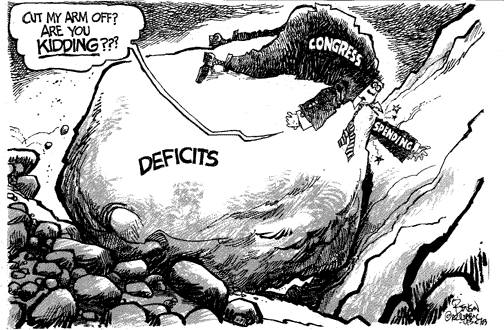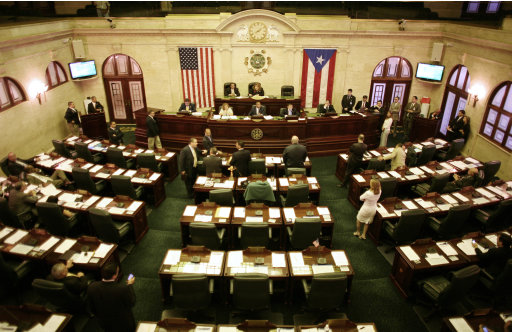"If you have 10,000 regulations," Winston Churchill said, "you destroy all respect for law."
He was right. But Churchill never imagined a government that would add 10,000 year after year. That's what we have in America. We have 160,000 pages of rules from the feds alone. States and localities have probably doubled that. We have so many rules that legal specialists can't keep up. Criminal lawyers call the rules "incomprehensible." They are. They are also "uncountable." Congress has created so many criminal offenses that the American Bar Association says it would be futile to even attempt to estimate the total.
So what do the politicians and bureaucrats of the permanent government do? They pass more rules.
That's not good. It paralyzes life.
Politicians sometimes say they understand the problem. They promise to "simplify." But they rarely do. Mostly, they come up with new rules. It's just natural. It's how the public measures politicians. Schoolchildren on Washington tours ask, "What laws did you pass?" If they don't pass new laws, the media whine about the "do-nothing Congress."
This is also not good.
When so much is illegal, common sense dies. Out of fear of breaking rules, people stop innovating, trying, helping.
Think I exaggerate? Consider what happened in Britain, a country even more rule-bound than America. A man had an epileptic seizure and fell into a shallow pond. Rescue workers might have saved him, but they wouldn't enter the 3-foot-deep pond. Why? Because "safety" rules passed after rescuers drowned in a river now prohibited "emergency workers" from entering water above their ankles. Only 30 minutes later, when rescue workers with "stage 2 training" arrived, did they enter the water, discover that the man was dead and carry him to the approved inflatable medical tent. Twenty other cops, firemen and "rescuers" stood next to the pond and watched.
The ancient Chinese philosopher Lao Tzu, sometimes called the first libertarian thinker, said, "The more artificial taboos and restrictions there are in the world, the more the people are impoverished.
... The more that laws and regulations are given prominence, the more thieves and robbers there will be." He complained that there were "laws and regulations more numerous than the hairs of an ox." What would he have thought of our world?
Big-government advocates will say that as society grows more complex, laws must multiply to keep up. The opposite is true. It is precisely because society is unfathomably complex that laws must be kept simple. No legislature can possibly prescribe rules for the complex network of uncountable transactions and acts of cooperation that take place every day. Not only is the knowledge that would be required to make such a regulatory regime work unavailable to the planners, it doesn't actually exist, because people don't know what they will want or do until they confront alternatives in the real world. Any attempt to manage a modern society is more like a bull in a darkened china shop than a finely tuned machine. No wonder the schemes of politicians go awry.
F.A. Hayek wisely said, "The curious task of economics is to demonstrate to men how little they really know about what they imagine they can design." Another Nobel laureate, James M. Buchanan, put it this way: "Economics is the art of putting parameters on our utopias."
Barack Obama and his ilk in both parties don't want parameters on their utopias. They think the world is subject to their manipulation. That idea was debunked years ago.
"With good men and strong governments everything was considered feasible," the great Austrian economist Ludwig von Mises wrote. But with the advent of economics, "it was learned that ... there is something operative which power and force are unable to alter and to which they must adjust themselves if they hope to achieve success, in precisely the same way as they must taken into account the laws of nature."
I wish our politicians knew that. I wish they'd stop their presumptuous schemes.
We need to end the orgy of rule-making at once and embrace the simple rules that true liberals like America's founders envisioned.
Original article by John Stossel







